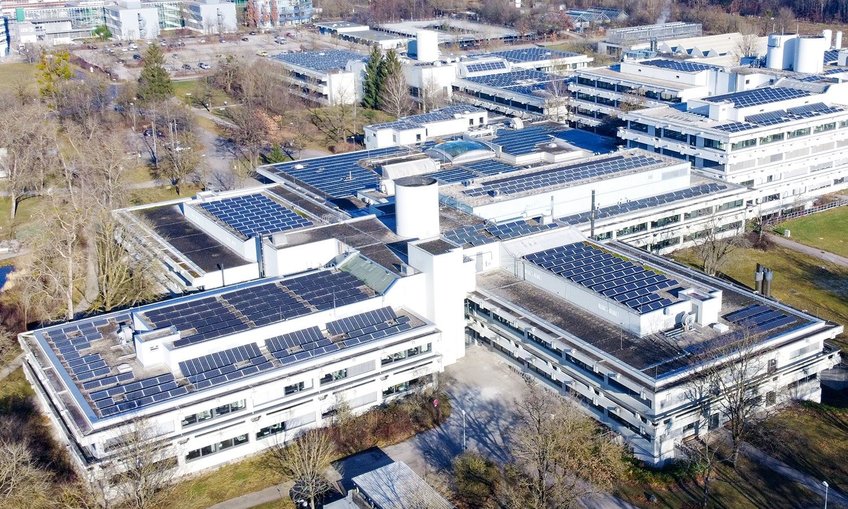The research organisation aims to halve its emissions by 2029 compared to 2019
The Senate of the Max Planck Society launched the Climate Action Plan for climate-neutral research operations presented by President Patrick Cramer on 15 March. The plan envisages that the Max Planck Society will halve its greenhouse gas emissions by 2029 compared to 2019. “The Max Planck Society makes outstanding scientific contributions to understanding and tackling climate change. It also wants to act sustainably as an institution and make its contribution to climate protection. We will continue to develop our Climate Action Plan and add new measures,” says Patrick Cramer.

Photovoltaic system on the roof of the Max Planck Institutes of Biochemistry and Biological Intelligence in Martinsried near Munich.
© MPI for Biochemistry/ Tim Laugks
Together with the Alliance of Science Organisations, the Max Planck Society has set itself the goal of becoming climate-neutral by 2035 at the latest. An important contribution to this is the planned purchase of green electricity outside of the EEG levy. Furthermore, energy management systems are to be introduced at all institutes and facilities. This will also support and implement the annual energy savings of two per cent prescribed by the Energy Efficiency Act.
One measure to reduce greenhouse gases that has already been successfully launched is the “Max Planck Solar” programme, which enabled photovoltaic systems to be initiated at 31 locations in the first round of tenders in 2023.
Mission statement
The basis for the Climate Action Plan is the mission statement adopted by the Max Planck Society’s Council of Perspectives in September 2023:
“The Max Planck Society is committed to contributing to a future worth living through both its research and its practical actions. It wants to be a role model for how research can be organised in a responsible, sustainable and climate-friendly way.”
The Max Planck Society is thus making it clear that sustainability and climate protection are characteristics and the organisational basis of a modern research organisation that is attractive to the best talent. The efficient use of energy and the avoidance of climate-damaging emissions also releases potential for innovation and progress. Furthermore, the Max Planck Society is convinced that although research operations without fossil energy sources require higher initial financial investments, they will be more sustainable overall in the long term, also in economic terms.
Following the favourable discussion in the Senate on 15 March, the Climate Action Plan will be continuously updated in future. Among other things, it has already been supplemented by guidelines on Biodiversity at Max Planck Institutes. Further guidelines for a climate-friendly mobility culture in science and for sustainable construction are to follow in the near future.




